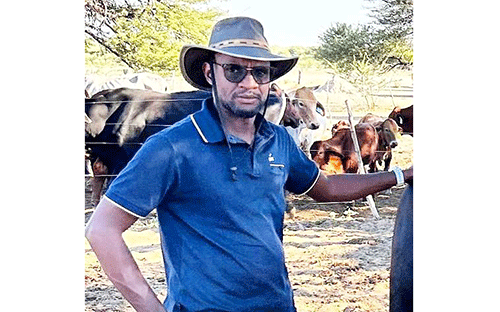Zebaldt Ngaruka
OKATUMBA GATE – The ongoing drought has financially and emotionally taken a toll on farmers in the Omaheke region, especially those farming in the Eiseb Block area.
AgriToday recently caught up with a young farmer Sunny Tjaheja Ndjavera, who shared how the drought has negatively impacted his operations.
He farms at Omipanda village.
Having lost 12 cattle to the drought, he said the situation is bad for almost all farmers countrywide, and requires livestock owners to have unwavering commitment, determination and innovative ways to survive the dry spell.
He said the drought situation has forced him to reduce the number of his livestock to ease the pressure on his finances.
Besides the drought, the part-time farmer is also grappling with the poison plant, better known as Otjikurioma or gifblaar, which has killed some of his animals.
“I lost most of my sheep due to the poison plant last year. It was a tough period. We are being attacked on two fronts by these natural calamities [drought and poison plant], and are left with no other option than to rely on God’s hands while digging deeper in our already dry pockets,” he said.
The best remedy for drought is to regularly provide supplements to the livestock, he added.
“It has been a mountain to climb, and I am glad that I managed to survive despite all odds. I did all these because of my passion for farming. We also have employees to take care of, and the income we get from cattle when the season is favourable
gives us motivation not to give up farming. This drought required me to be closer to my livestock than before,” he said.
Besides cattle, he also farms with sheep, and has a small backyard garden.
Ndjavera compliments the government through the agriculture ministry and the Omaheke Regional Council for their efforts in helping farmers during the current drought.
– zngaruka@yahoo.com


